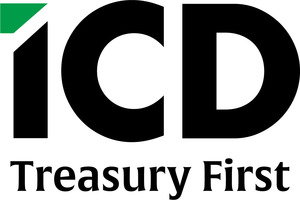ICD Survey of 121 Corporate Treasury Professionals Reveals Strong Opposition to Proposed Additional SEC Money Market Fund (MMF) Regulatory Action
- Survey polls 14% of institutional MMF Portal industry
- More than 95% of the respondents stated that their company would reduce MMF investments
- This reduction would lead to a $714 billion decrease in MMF investments
SAN FRANCISCO, March 5, 2012 /PRNewswire/ -- Institutional Cash Distributors (ICD), the world's largest independent MMF trading and risk management company, announced today the results of a client survey on the following MMF reform actions currently under SEC consideration: 1) additional capital buffer requirements; 2) principle redemption holdbacks; and 3) conversion to a floating net asset value.
The ICD survey findings that are discussed in a new ICD Commentary: Costs and Consequences revealed that nearly all of the survey's respondents would decrease their MMF investments if the proposed reform options are enacted. Thirteen clients stated they would exit MMF investments entirely, with the average net estimated reduction of all respondents totaling 41%. Total institutional MMF investments are approximately 66% of the $2.6 trillion in U.S. MMF investments. Applying the survey's 41% asset reduction across U.S. institutional MMFs, these SEC proposed MMF regulations would result in an estimated loss of $714 billion in MMFs.
MMFs currently invest in about 38% of total commercial paper assets. Assuming a 27% (66% x 41%) MMF reduction, their contribution to commercial paper financing would decrease by $110 billion. This would challenge companies like General Electric, Johnson & Johnson, Harley-Davidson, Procter & Gamble and other enterprise companies who rely on commercial paper as a means to finance accounts receivable, maintain inventories and meet short-term liabilities.
MMFs contribute 12% of all U.S. Treasury securities. Assuming a 27% reduction, MMF contributions to Treasury Department securities financing would decrease by approximately $89 billion. This lowered credit supply for treasuries would increase U.S. borrowing costs. With the nonpartisan Congressional Budget Office projecting total U.S. debt at greater than $20 trillion by 2016, it is critical that treasury financing remain as low as possible.
MMFs contribute 37% of the investment funding for all U.S. government agency securities. Assuming a 27% reduction, MMF contributions to agency securities financing would decrease by $103 billion. This would burden these agencies, which are integral components of the home loan and farm credit systems.
"The significant corrective reforms made to Rule 2a-7 by the SEC in 2010 are working, witnessed by MMF steadiness and control during the 2011 U.S. debt ceiling showdown, U.S. credit rating downgrade and the ongoing Eurozone debt crisis," commented Tory Hazard, ICD's COO/CFO. "To add further unnecessary regulation will negatively impact U.S. corporations, municipalities and the U.S. Treasury with more expensive financing at the worst possible time."
ICD Commentary can be downloaded at:
http://www.icdportal.com/downloads/ICD-Commentary_Costs_and_Consequences.pdf
About ICD:
ICD is the world's premier independent MMF trading and risk management company. ICD's next-generation portal, best practices methodologies and Transparency Plus® exposure analytics support corporate treasury with end-to-end solutions. ICD's global coverage is facilitated by its offices in London (ICD Trade Desk™), San Francisco (ICD Trade Desk™), Golden, Colorado (ICD Tech), Los Angeles, Boston, and Dubai. More information about ICD is available at icdportal.com
PRESS CONTACT:
Debby Barri
Public Relations Director
424.206.2402 - [email protected]
SOURCE Institutional Cash Distributors, LLC
WANT YOUR COMPANY'S NEWS FEATURED ON PRNEWSWIRE.COM?
Newsrooms &
Influencers
Digital Media
Outlets
Journalists
Opted In




Share this article